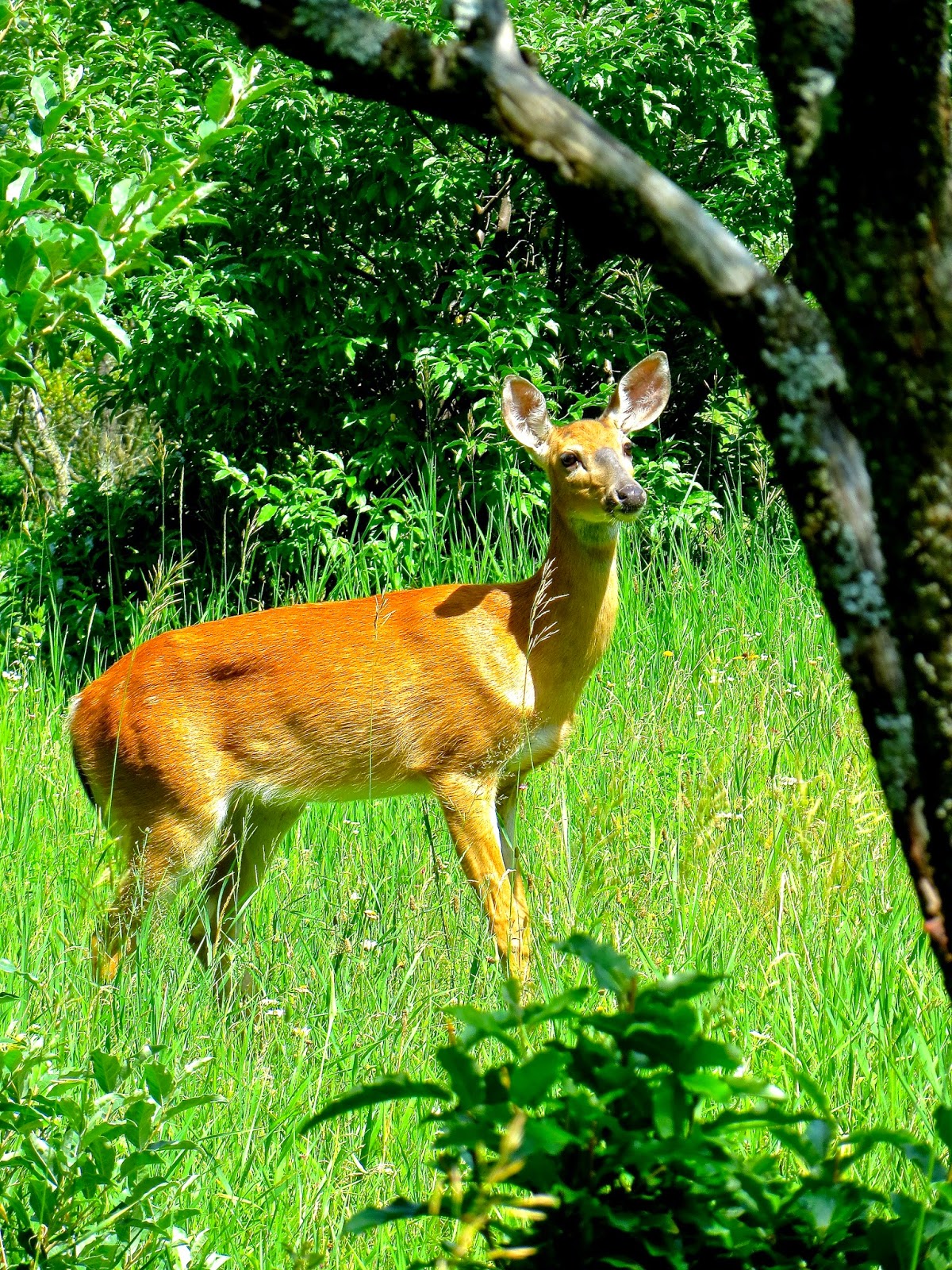 |
| Camouflage: Yellow Warbler |
At Butlers Birds on 8/14/14 [http://butlersbirdsandthings.blogspot.com], the blogger mentions the Eastern Pee Wee and the House Finch in connection with “predatory thanatosis,” a wonderful academic phrase that means mimicking death--yes, playing possum, or playing dead like Falstaff--Shakespeare's comic, pragmatic, lovable, execrable, drunken, cowardly, obese knight, Sir John Falstaff. (see below).
I wondered about a bird's reasons for pretending death. It's usually for safety--creating lack of interest from a predator. But some think it's possible that a bird might be trying to trick a predator or a prey into coming close enough for a surprise counterattack by the supposedly injured or dead "possum bird."And if birds don't do it, other animals do.
I looked at a couple of additional sources on Wikipedia and
found that some male spiders fake death in order to improve their chances for
survival after mating with a female.The males usually die after mating, and sometimes the female eats her suitor.
So how could I fail to think of poor old Edward Lee and
Sadie Bell in my last post (8/13/14). Here it is again, with the news above
from the animal kingdom added for a bit of context. You’ll be forgiven if you find
yourself humming “Frankie and Johnny” as you read—“Rat a tat tat, three times
she shot, right through that hardwood door. He was her man, but he was doin’
her wrong.”
I hope you'll look at Wikipedia's fascinating info on predatory thanatosis, even at the risk of finding your imaginative self picturing these
bird, snake, fish, spider, and human maneuvers in 3D Technicolor.
Once again from The
Oakland Press, Pontiac, Michigan, July 26, 2014:
Bond revoked for
Southfield woman convicted of shooting boyfriend over sexual performance.
Sadie Bell, 58 . . . shot her longtime lover, Edward Lee, after he
produced what she believed to be an inadequate amount of ejaculate during a
sexual encounter.
She accused Lee of cheating on her.
Bell and Lee had been having an affair for 15 years . . . .
I don't know if Falstaff can be appreciated
outside the plays themselves (both parts of Henry IV, plus
Henry V), but his self-serving, devious
humor can be seen here, as can the high stakes underlying the banter between him and Prince Hal, who has become King Henry V:
- Henry V. That villanous abominable misleader of youth,
1445
Falstaff, that old white-bearded Satan.
- Falstaff. My lord, the man I know.
- Henry V. I know thou dost.
- Falstaff. But to say I know more harm in him than in myself,
were to say more than I know. That he is old, the 1450
more the pity, his white hairs do witness it; but
that he is, saving your reverence, a whoremaster,
that I utterly deny. If sack and sugar be a fault,
God help the wicked! if to be old and merry be a
sin, then many an old host that I know is damned: if 1455
to be fat be to be hated, then Pharaoh's lean kine
are to be loved. No, my good lord; banish Peto,
banish Bardolph, banish Poins: but for sweet Jack
Falstaff, kind Jack Falstaff, true Jack Falstaff,
valiant Jack Falstaff, and therefore more valiant, 1460
being, as he is, old Jack Falstaff, banish not him
thy Harry's company, banish not him thy Harry's
company: banish plump Jack, and banish all the world.
- Henry V. I do, I will.
 | |||
| See the gator snout just above the lily pads? Good time for the immature ibis to play dead | . |






















































